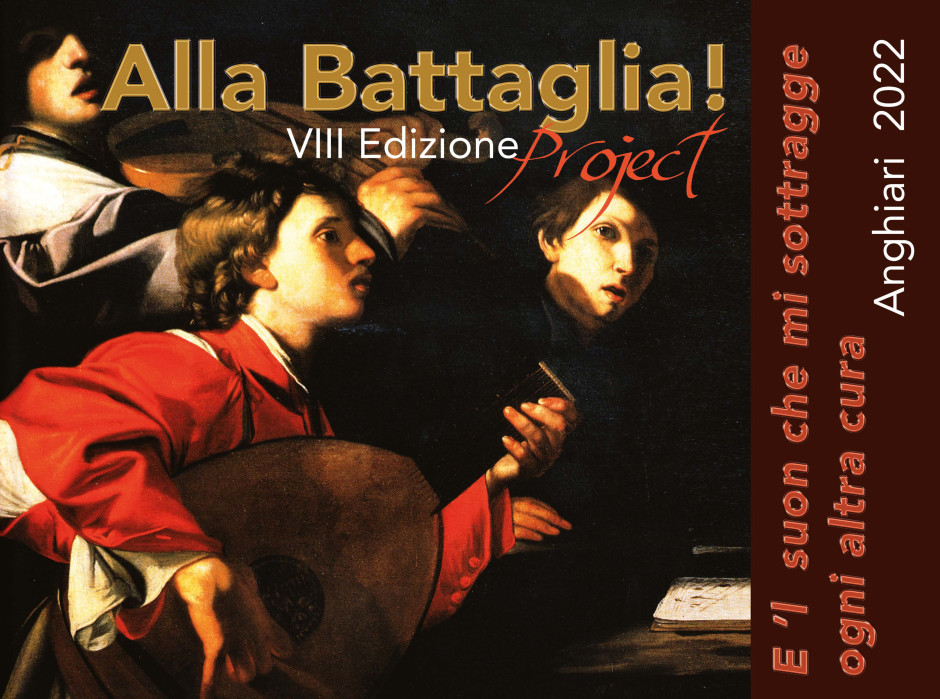The relationship between music and battle is an archetypal relationship that witnesses the ethical dimension of musical discipline and its impact on the human being. The sound of the trumpets and the drums, for example, inciting to the battle and enter into the souls of men. But the combat is also a metaphor of the different ‘battles’ which characterize the life: love quarrels, moral duels…: the dialectic between shadow and light that constantly counterpoint the human life. Shadow and light characterized, according to contemporary chronicles, also one of the most symbolic events of the Italian Renaissance: the Battle of Anghiari. It was said, indeed, that the Milanese troops remained as blinded by an intense light that prevented them from seeing the enemy and to win it. In this musical journey, ideally anchored in such a paradigmatic event, the battle is interpreted at the same time as symbolical and real event. The concert opens with a contemporary piece that defines a metaphorical context in which sounds represent lost images: the mythical “fresco” on Anghiari’s battle by Leonardo. As an ideal journey, the concert ends with another contemporary piece that, this time, represents the horror of the struggle: blood, pain , screaming, joy of the winners, fear of the defeated. Between the two pieces (both specially composed for the occasion) a historical repertoire of largely unpublished battles in music: from the battles of love (Dufay, Berchem, Conforti) to the battles tout court (Banchieri, Werrecore); from the theme of the return (Dowland) to the autobiography of the soldiers (Hume, composer and at the same captain); ending with a Te Deum for the victory (De Victoria), that unites all –winners and losers, light and shadow– in a new peace again conquered.
Nicoletta Andreuccetti, L’affresco perduto (prima esecuzione assoluta), Guillaume Dufay, Donne l’assault a la fortresse, Clement Janequin, La battaille de Marignan, Bellerofonte Castaldi, Battaglia a due stromenti, Jacquet de Berchem, Le donne, i cavallier, l’arme, gli amori, Jacquet de Berchem, O gran bonta de’ cavalieri antiqui, Giovanni Battista Conforti, Non rumor di tamburi o suon di trombe, Mathias Hermann Werrecore, La Bataglia Taliana, Giovan Battista Pinello di Gherardi, Battaglia in lode de la vittoria christiana, Tobias Hume, Soldier’s March, Adriano Banchieri, La Battaglia per organo, Tomás Luis da Victoria, Te Deum Laudamus, Nicoletta Andreuccetti, La Battaglia di Anghiari (prima esecuzione assoluta).


